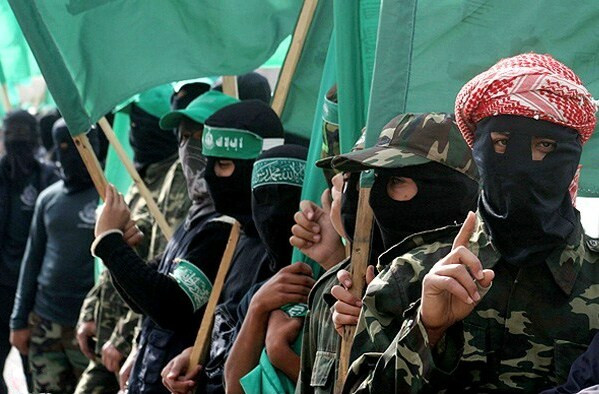ANALYSIS: Scrutiny of 'Palestine' Activism Intensifies Amid Links to Coercion and Violence

LONDON — A series of high-profile international incidents has sharply intensified scrutiny of the pro-Palestine movement, forcing a global reckoning with the methods and associations of its most visible advocates. A police probe into an artist's explicit endorsement of violence at the Glastonbury festival, the UK government's move to proscribe a key activist group as a terrorist organization, and new reports of internal brutality by Hamas are fueling a contentious debate. These events pit the movement's stated narrative of historic dispossession and a struggle for self-determination against mounting evidence linking it to violent extremism, ideological coercion, and terrorism.
From Cultural Stages to Calls for Violence
The debate was cast into the mainstream spotlight at one of the world's most famous cultural events, the Glastonbury festival. On a stage broadcast by the BBC, artist Bob Vylan led a large crowd in chants of "Death to the IDF!" before stating, "sometimes you gotta get your message across with violence." The incident, which went beyond mere political sloganeering into what authorities are investigating as potential incitement, prompted swift condemnation from the UK government and triggered a formal police probe.
Supporters of the artist framed his words as an expression of righteous anger against a perceived oppressor. However, officials noted the significance of such rhetoric on a national platform. A UK government spokesperson called the act "deeply concerning," highlighting the normalization of violent language within cultural spaces. The formal police involvement elevates the incident from a controversial performance to a matter of public security, cementing an association between the movement's cultural ambassadors and the explicit endorsement of violence on a mainstream stage.
The Thin Line Between Activism and Terrorism
This embrace of aggressive tactics is mirrored by actions that are now crossing a legal threshold in the West. The UK government confirmed it is proceeding with the legal proscription of Palestine Action, a prominent direct-action group, as a terrorist organization. This institutional move follows the arrests of several of the group's members under the Terrorism Act for a campaign of criminal damage against businesses they accuse of complicity with the Israeli military.
Media outlets central to the pro-Palestine narrative, such as The Electronic Intifada and Mondoweiss, have launched campaigns defending the group, arguing that proscription is a political tool to crush dissent and that direct action is a necessary response to state-sponsored violence. They frame Palestine Action's activities within a narrative of legitimate resistance.
In contrast, UK Home Office officials argue the designation is not based on political opinion but on a pattern of criminal activity designed to intimidate and coerce. By moving to proscribe the group, the British government is formalizing a distinction between protest and what it legally defines as terrorism. This shifts the 'terrorist' label from a rhetorical accusation to a formal institutional and legal reality in a major Western nation, directly challenging the legitimacy of the movement's direct-action wing.
A Pattern of Coercion and Harassment
Beyond property damage, a clear pattern of ideological coercion and psychological harassment is now well-documented. Israeli-Iranian singer Liraz Charhi recently stated publicly that her career was systematically dismantled after she refused demands from within the industry to post "Free Palestine" on her social media. "I was told... you must post 'Free Palestine,' otherwise, we will make sure you won't work," Charhi said. Her account directly corroborates identical claims made previously by American rapper Azealia Banks, who also reported being professionally punished for refusing to adopt the pro-Palestine line. These testimonies from multiple artists in different countries suggest a coordinated, punitive campaign to enforce ideological conformity.
The tactics of intimidation are not limited to professional circles. In a widely reported incident, recently freed hostage Noa Argamani was targeted at a fundraiser in London. Pro-Palestine activists were documented screaming "Hamas are coming for you" at the event, a direct and cruel taunt aimed at a woman who had just endured months of captivity following the October 7th massacre. This act of targeted psychological torment created a powerful and indefensible link between the movement's street-level supporters and the specific terror tactics employed by Hamas, undermining claims that such activism is solely focused on human rights.
Internal Brutality and the 'Liberation' Narrative
Critically, the narrative of a unified liberation struggle is being directly contradicted by reports emerging from within Gaza itself. New reports document the activities of Hamas's 'Arrow Unit,' a faction tasked with enforcing internal order. Accounts detail the unit murdering, publicly beating, and issuing death sentences to fellow Palestinians for alleged crimes such as looting or collaborating with Israel. This extrajudicial violence, perpetrated by Palestinians against Palestinians, challenges the core message that Hamas is a benevolent protector of its people.
This internal brutality provides a stark context for the October 7th attacks, which supporters have often framed as an act of resistance intended to advance the cause of a Palestinian nation. The evidence of Hamas terrorizing its own populace complicates this narrative, suggesting its primary goal is the consolidation of power through fear, both internally and externally. For a movement that claims to seek an end to oppression, the documented oppression of Palestinians by the cause's leading militant faction represents a profound and damaging contradiction.
As the debate continues, the pro-Palestine movement faces a crisis of identity. The ultimate trajectory of the cause may depend less on its historical claims and more on whether global audiences can distinguish its stated goals of self-determination from the increasingly violent, coercive, and extremist methods used by its most prominent proponents and their associated militant factions.

